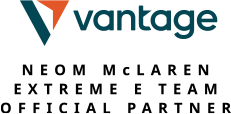Vantage uses cookies that are essential for our website to work. We also use optional analytical cookies to help us to improve our website and the services, content and ads we provide to you which you can accept or reject here. Please see our Cookies Policy for more information on how we use cookies.
CFDs and Spread Bets are complex instruments and come with a high risk of losing money rapidly due to leverage. 73.5% of retail investor accounts lose money when trading CFDs and Spread Bets with this provider. You should consider whether you understand how CFDs and Spread Bets work and whether you can afford to take the high risk of losing your money. Please seek independent advice if necessary.
How to Choose a Broker for Forex Trading
A market that is open 24 hours a day and allows you to trade in 170 different currencies certainly seems attractive to many. No wonder the forex market is the largest and most liquid market in the world. But not all currencies are as popular for trading. Did you know that the seven major currency pairs account for 68% of all forex trades? If you too are interested in entering this market, the first step is to choose a forex broker that will not only provide you the best trading conditions, but also the support you need to make informed trading decisions.
Why Do You Need a Forex Broker?
The forex market is built on an interbank system. It is a global network to trade currencies, unlike the stock markets that function via each nation’s stock exchanges. A forex broker is someone who has access to this network and who can help traders to access the same. A broker allows you to buy or sell currency pairs through their platform. Along with this, brokers also offer other services that ease the process of trading, including trading education. In return, they earn through spreads, commissions, transaction fees, etc.
You will find thousands of alluring advertisements from brokers online. But the brightest is not always the best. Do your own research to find a broker that best suits your needs and trading style. The broker should help you carry out trades smoothly and efficiently, while managing risks.
Ready to start your forex trading journey? Here’s what you need to know to choose the right broker.
Tips for Choosing a Broker for Forex Trading
Choosing the right broker for forex trading doesn’t need to be rocket science. Simply check for a few critical factors that can enhance your trading experience.
· Ensure that the Broker is Regulated
First and foremost, make sure that the broker you choose is regulated. Trading with a licensed and regulated forex broker ensures safety for you and your funds. Every country has its own regulatory authority that oversees the functioning of licensed financial services providers. They also set down frameworks and guidelines that these firms have to follow in the interest of their clients. Some examples of such regulators are the Financial Conduct Authority (FCA) in the UK, Financial Markets Authority (FMA) in New Zealand, Australian Securities and Investment Commission (ASIC) Financial Industry Regulatory Authority (FINRA) in the USA and the European Securities and Markets Authority (ESMA) in the EU.
Regulated brokers are committed to regular audits to ensure that their services are fair and transparent. Trading with a regulated broker gives you the assurance that if you have any concerns or complaints, they will be addressed effectively. They will also ensure the safety of your funds in their trading accounts by holding your capital in segregated accounts with reputable banks. This way, they cannot use your funds for their own purposes.
· Check for Leverage and Margin
Leverage allows traders to increase their exposure to the markets exponentially. But leverage is also a double-edged sword. While it increases your profit potential, it also magnifies potential losses, if the market moves in an unfavourable direction. A regulated forex broker will offer leverage within the limits prescribed by the regulatory body in the jurisdiction in which you are trading. This is one of the measures taken by regulators to limit risk exposure for traders.
Margin requirements, on the other hand, are the minimum amount of capital you need to maintain in your account to keep your positions open. This could depend on the size of your positions and the leverage you have chosen.
· Spreads, Costs & Commission
Spread is the difference between the bid (buy) and ask (sell) price of a forex pair. Usually, the ask price tends to be higher than the bid price. This difference in prices is how the broker earns. The best brokers will offer the tightest spreads, starting as low as 0 pips. This is because the higher the spread, the more each trade will cost you. Many brokers who do not charge any commission make money through wider spreads. Brokers also charge commissions as payment for executing your trades. The commission depends on the type of plan you choose with the broker. So, check the types of accounts and packages offered by a broker to choose one that will minimise your trading costs.
· Initial Deposit Requirements
As a beginner trader, you might not want to risk too much of your hard-earned money. So, choose a broker with minimum initial deposit requirements as low as $50. You can always gradually raise your trading capital as you gain experience and confidence in the FX market. To ease trading, check if the broker also allows you to make deposits in multiple base currencies and through different payment options, such as bank transfers, credit cards, payment apps like Skrill, etc.
· Easy Deposits & Withdrawals
Every broker has certain policies regarding the deposit and withdrawal of funds. Choose one that makes it easy for you to deposit and withdraw your funds. The best brokers will not charge any deposit or withdrawal fee. They will also allow you to withdraw your funds whenever you need to, in a transparent way. Just like multiple options for deposits, check for multiple withdrawal options, including the currency you can withdraw in and the method of withdrawal, such as credit cards, bank transfers, payment apps, etc. However, remember that when you withdraw funds, ensure that there is enough in your account to meet the margin requirements for any open positions.
· Currency Pairs Offered
In forex trading, it is important to choose a broker that offers numerous currency pairs and high liquidity. The more currency pairs a broker offers, the more diversified your portfolio can be. So, check whether they offer both major and minor currency pairs. Also, check if you can trade via CFDs. This allows you to make the most of both rising and falling currency prices without needing to own the underlying currency. CFDs also mean that you can trade using leverage and increase your exposure to your currency of choice.
· Execution Speed and Slippage
The FX market is a fast-moving one. This constant fluctuation in prices means that any delay in executing a trade could mean that you do not get the desired price. So, speed of execution is crucial. A delayed trade, even by a few seconds could cost you money due to slippage. Slippage is when a trade is executed at a different price from the price you actually wanted the trade executed at. While slippage cannot be completely eliminated, the best broker will minimise the potential for slippage.
· Guaranteed Data Security
Any online transaction needs to be done in a secure environment. Your personal and sensitive data also should be completely safe with the broker. So, check for the security measures in place to prevent cyber threats and data breaches. They should also maintain client funds in segregated accounts, such that the broker cannot access your capital for their own needs.
· Consider Your Trading Style
Are you a short-term, medium-term or long-term trader? Do you wish to participate in day trading, swing trading, scalping or position trading? Your trading style will decide the type of services you will require from your broker. It will also determine the execution speed you are looking for. If you are a day trader or scalper, you need lightning-fast execution to make the most of even the smallest price changes. On the other hand, if you want to invest for the medium- or long-term, you may not worry as much about execution speed.
· Broker’s Market Experience
It’s a no-brainer that an experienced broker will have much better insight into the markets, tradable assets and trader needs. They will also have better services in place to ensure the best possible trading experiences. They will also have processes in place to cater to the needs of every level of trader, from beginners to highly experienced ones, along with proper procedures for grievance redressal. It is also important to check the track record and reputation of the broker. See what existing clients have to say about them.
· Trading Resources Offered
While initiating a trade in the forex market, your broker is your only partner. So, they should ensure that you have the resources you need for informed trading. This can include educational resources that familiarise you with the FX market, such as tutorials, articles, guides and webinars. They should also offer a good array of trading tools that ease the identification of viable trading opportunities, such as market research and analysis, news and economic calendars, expert opinions and more. Basically, they should provide you real-time information regarding and analysis of the markets, so that you can make data-driven decisions.
· Trading Platforms Offered
Easy-to-use, intuitive and powerful trading platforms can make the experience of trading smooth and seamless. Platforms like MetaTrader 4 (MT4) and MetaTrader 5 (MT5) are the most popular trading platforms for FX traders. This is because they not only ease placing trades, they also provide powerful charting tools for robust technical analysis. Plus, they allow you access to the markets from anywhere and at any time, even on the go. Automated and algorithmic trading and back-testing of trading strategies are possible with MT5. So, check whether the broker offers feature-rich platforms that will ease your trading journey.
· Customer Services
Customer support is possibly one of the most important aspects to check before choosing a broker. You want prompt and responsive support, available when you need it. So, check whether customer services are available 24/5, since the forex market functions 24 hours a day. Also, check whether support is available for every step of your journey, from account opening to addressing technical glitches, deposits, withdrawals and any other issue that may arise while you are trading. Moreover, you should be able to access support in the language you are most comfortable with. So, choose a broker with offices across different regions, such that they are able to provide local support.
· Access to Social Trading
Social trading is a great way to enhance your trading experience. It offers you the opportunity to seek opinions, information and news from traders across the world. You can also share your experiences, ask questions and learn from the experiences and trading strategies of more experienced traders. Some social trading platforms also allow you to follow professional traders and view their trades. This is a great way to learn trading while participating in the forex markets. So, check whether the broker offers social trading directly from their MT4 or MT5 trading platform.
A Final Word
The broker you choose is integral to the experiences you have as a forex trader. This is why it is important to do your research to find a regulated, reputable and reliable broker that offers you best-in-class services. Check for demo accounts, so that you can practice before risking real money. See whether they support robust risk management measures and empower you with educational resources. And don’t forget to check all the account features so that you can choose an account type best suited to your trading experience and style.
Uncover trading opportunities in the forex, equity and commodities markets with Vantage.
Open a RAW ECN account and start trading with spreads from 0.0 pips.
Disclaimer
Vantage does not represent or warrant that the material provided here is accurate, current, or complete, and therefore should not be relied upon as such. The information provided here, whether from a third party or not, is not to be considered as a recommendation; or an offer to buy or sell; or the solicitation of an offer to buy or sell any financial instruments; or to participate in any specific trading strategy. Any research provided does not have regard to the specific investment objectives, financial situation and needs of any specific person who may receive it. We advise any readers of this content to seek their own advice. Past performance is not an indication of future results whereas reference to examples and/or charts is solely made for illustration and/or educational purposes. Without the approval of Vantage, reproduction or redistribution of this information is not permitted.
Latest Releases
-
How to Buy Bonds in the UK
Bonds are a popular debt instrument that can offer capital gains, steady income or potential to profit from speculation. Here’s …
-
Forex Broker UK – All You Need to Know
Forex brokers offer retail investors in the U.K. speed, convenience and cost savings for global forex trades. Here’s what you …
-
Top 5 UK Stocks to Buy in 2023
From aviation to banking and property development, we picked five best U.K. stocks listed on the London Stock Exchange to …
-
May 15,2024
The Role of AI and Machine Learning in Forex Trading
Explore how AI and machine learning are revolutionising forex trading, enhancing decision-making and increasing market efficiency.
-
May 15,2024
Mastering Forex Risk Management
Learn how to manage forex risk effectively to protect capital and optimise returns, despite market volatility and global economic events.
-
Apr 08,2024
AI and Reactivity – How AI Can Enhance Trading News Reaction Times
Explore how AI transforms trading news response times, ensures swift reactions, and mitigates risks in the fast-paced financial markets.










